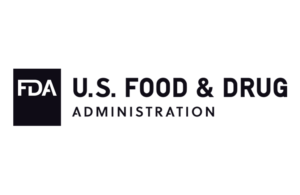 The FDA has issued warning letters to several companies selling products with cannabidiol (CBD) and delta-8 tetrahydrocannabinol (delta-8 THC) in violation of the Federal Food, Drug, and Cosmetic Act (FD&C Act).
The FDA has issued warning letters to several companies selling products with cannabidiol (CBD) and delta-8 tetrahydrocannabinol (delta-8 THC) in violation of the Federal Food, Drug, and Cosmetic Act (FD&C Act).
While the agency has previously sent out warnings to firms selling CBD-related products from 2015 to 2022, it is the first time it has sent out warnings for products with delta-8 THC.
The agency states that it has received reports of adverse reactions from individuals who have ingested delta-8 THC, including hallucinations, vomiting, tremor and loss of consciousness.
From December 1, 2020, and February 28, 2022, the FDA reports receiving 104 adverse events. More than half of those required a medical intervention of some kind.
In addition, national poison control centers received 2,362 exposure cases of delta-8 THC products between January 1, 2021 and February 28, 2022.
A loophole in a federal drug law led to the sale of Delta-8 THC products. Delta-8 THC is extracted from the hemp plant. The 2018 Farm Bill permits the sale of hemp, which has 0.3% or less THC based on dry weight.
The ambiguity has led to a growing number of vendors selling Delta-8 THC products.
“The FDA is very concerned about the growing popularity of delta-8 THC products being sold online and in stores nationwide,” said FDA Principal Deputy Commissioner Dr. Janet Woodcock in a news release.
In particular, the agency is troubled by labeling accompanying such products claiming they “treat or alleviate the side effects related to a wide variety of diseases or medical disorders, such as cancer, multiple sclerosis, chronic pain, nausea and anxiety,” Woodcock continued.
The agency has sent warning letters to the following companies:
FDA has asked for a written response within 15 working days explaining how the companies will address the violations and prevent them from recurring.
Vendors who fail to comply could face legal action, including product seizure or injunction.





To show genuine safety and efficacy in an FDA-style clinical trial, we are running a double-blind, placebo-controlled CBD trial in the large canine population experiencing chronic inflammatory disorders, such as arthritis. This means that neither the vet nor owners know what group is what – one is in fact a placebo (net-bossorg/the-power-of-the-placebo-effect-by-randy-baker). The study includes objective exams from the vet, subjective/objective owner responses, and blood work, and will help to determine safety and efficacy levels of CBD in dogs.